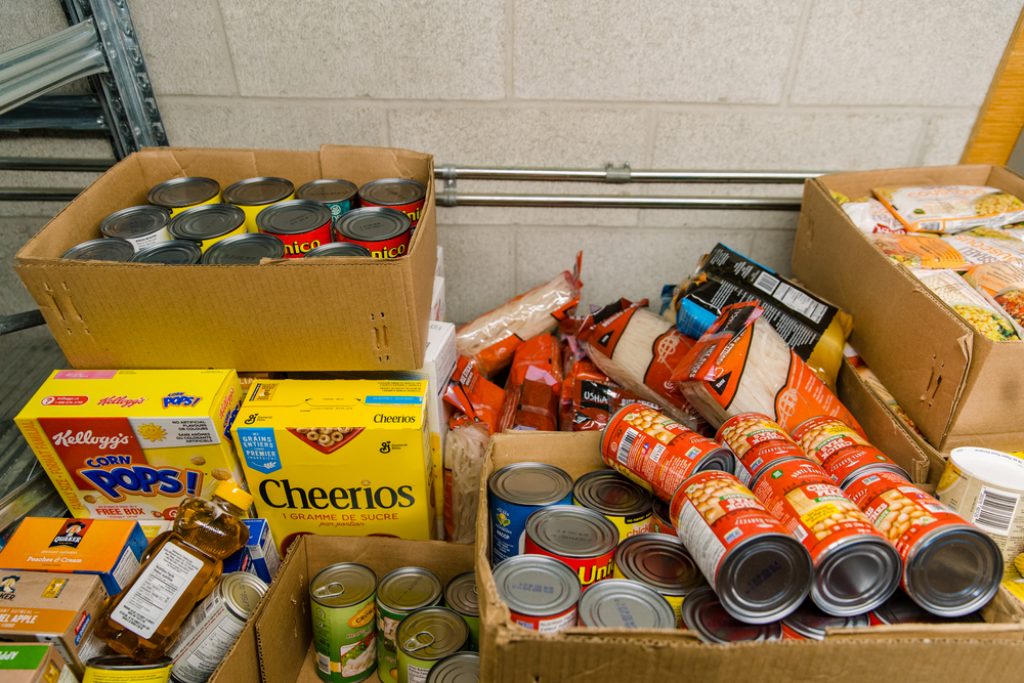The rate of food inflation fell to 9.9% in September, from 11.5% in August, according to an industry body.
It is the first monthly fall in food prices for over two years and is in part due to competition among the supermarkets.
Helen Dickinson, OBE, chief executive of the British Retail Consortium, said: “Food prices dropped on the previous month for the first time in over two years because of fierce competition between retailers.
“This brought year-on-year food inflation down to single digits and contributed to the fifth consecutive monthly fall in the headline rate, helped by easing cost pressures.
“Customers who bought dairy, margarine, fish and vegetables – all typically own-brand lines – will have found lower prices compared to last month. Households also benefitted from price cuts for school uniforms and other back-to-school essentials.”
All of the major supermarkets have launched discount schemes to tackle rising food prices and many of these are linked to loyalty cards, such as Tesco Clubcard and Nectar Prices. Yet, there has been some criticism of these schemes, including from consumer group Which? after it said prices could potentially be inflated before they are reduced as part of the scheme.
Shopping habits have also changed and many people are now opting for own-brand labels and discount supermarkets. Aldi, for example, recently said it now has a million more shoppers than a year ago.
Shop price inflation, which measures a basket of 500 commonly-bought items, fell to 6.2% from 6.9% in August, the lowest level in a year.
Fresh food inflation also eased, to 9.6% in September from 11.6% the previous month, as measured on the BRC-Nielsen Shop Price Index (SPI).
Non-food inflation fell to 4.4%, down from 4.7%, the lowest level since December 2022 while ambient food inflation was 10.4%, down from 11.3% in August.
The data echoes a report from Kantar showing food inflation easing, yet prices are still significantly higher than a year ago.
‘Many risks to this trend’
Dickinson added: “We expect Shop Price Inflation to continue to fall over the rest of the year, however there are still many risks to this trend – high interest rates, climbing oil prices, global shortages of sugar, as well as the supply chain disruption from the war in Ukraine.
“Retailers will continue to do all they can to support their customers and bring prices down, especially as households face being squeezed by higher energy and mortgage bills.”
Mike Watkins, head of retailer and business insight at NielsenIQ, said: “With further price cuts by supermarkets in recent weeks, food inflation continues to slow which is good news.
“However, there continues to be pressure on budgets with over half of households still feeling that they are significantly impacted by the continued increases in cost of living. So, it will be important for retail sales to keep momentum which means we can expect more price cuts and increased promotional activity across all retail channels.”
‘Food is just one part of overall expenses’
Myron Jobson, senior personal finance analyst for interactive investor, said: “Prices are no longer rising at the fastest pace in four decades, but the latest figures show that we still paid almost 10% more to put food on tables last month than we did a year ago.
“The stark reality is that many households, especially those on the lower end of the income spectrum who spend a greater proportion of their income of food, will still need to limit spending to save money and build financial resilience.
“While a decrease in food inflation can bring temporary relief to grocery budgets, it doesn’t guarantee complete financial security. Food is just one part of overall expenses. The rise in cost of other of essential expenses like rent/mortgage continue to have a telling impact on personal finances.”

